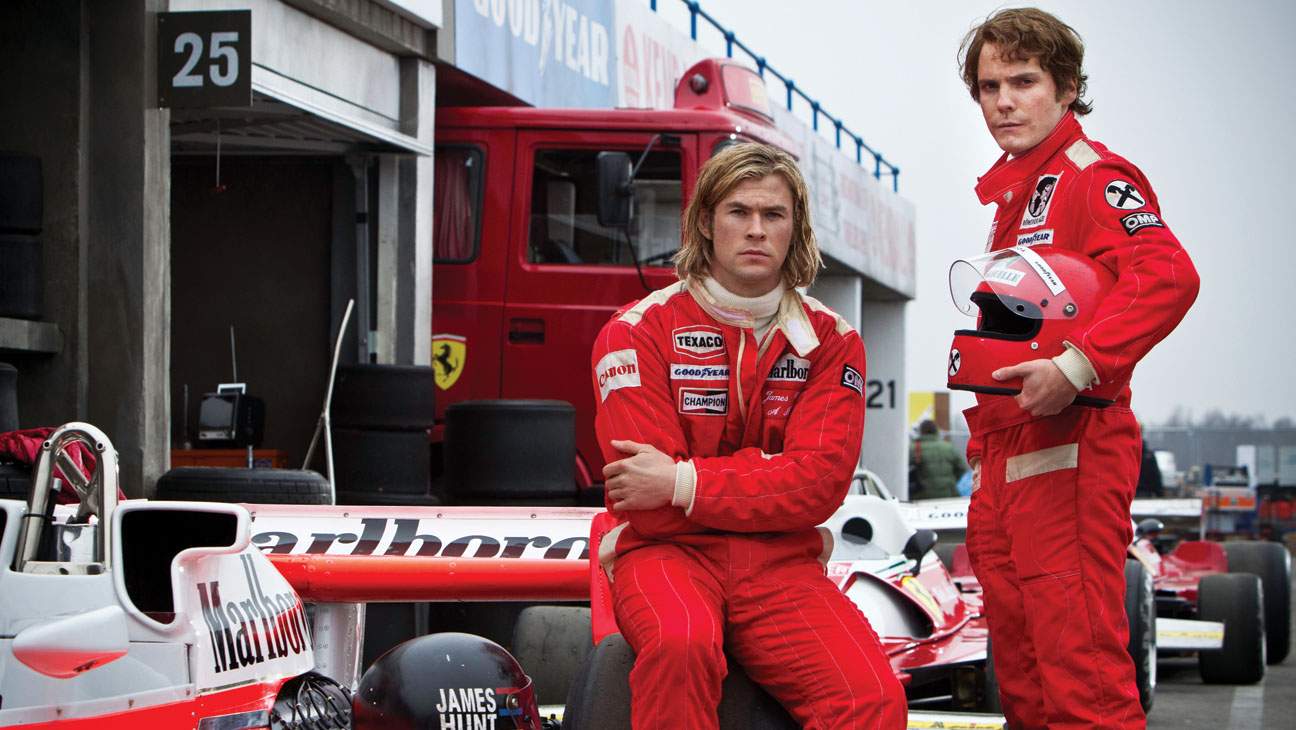Rush
'Fast car' films slip into a new gear with this thrilling biopic from Ron Howard.
Overview
Piecing together Ron Howard's petrol-headed extravaganza Rush is a bit like piecing together one of the F1 racers that this film is so in love with. It begins as little more than a mishmash of scrap metal. A love interest here, a chiselled six-pack there, but nothing quite manages to gel together to create a cohesive whole. Once the various touchstones and expectations of the biopic genre have been ticked off, a more fully formed picture begins to take shape. When the film finally does take off, somewhere near the hour mark, it has all the power and explosive energy of a supercharged engine. Well, it almost does.
For anyone with even a smidgen of gasoline running through their veins, the 1976 Formula One season is the stuff of sporting folklore. For the rest of us, Rush is your classic tale of warring rivals: McLaren's loveable British rogue, James Hunt (Chris Hemsworth) versus Ferrari's reigning world champ, and the biggest "asshole" in racing (this is not my judgment, this is the film's recurring insult-of-choice), Niki Lauda (Daniel Brühl).
If the trailers are anything to go by, then Rush is targeting two groups of movie-goers: (1) those who like their movies filled with vintage cars whooshing across pretty landscapes and (2) those who like their movies filled with porny shots of a shirtless (and often pants-less) Hemsworth. While the film includes plenty of both, these are perhaps Rush's weakest points. The early race scenes look more like well-funded car ads then the work of the guy that made A Beautiful Mind, and Hemsworth, while perfectly adept at shouting expletives and glaring angrily, ain't no Marlon Brando. His attempts at bad boy charm are consistently wooden and occasionally quite laughable.
Because Hollywood has inundated us with so many films about fast cars, filmmakers cannot simply show a couple shots of burning rubber and shifting gears and expect audiences to get a rise out of it. The stakes need to be higher.
When Rush does set the bar higher, the film is quite irresistible. Once Howard shows us what makes these two racers click, we begin to care about them, with every race becoming a thrilling, heart-in-mouth experience. We feel their fear when the film puts us in the driver's seat and when the camera cuts to the reaction shots of loved ones. These shots do not simply instruct our emotions but actually reflect them.
Much of this emotional engagement is thanks to Brühl's star-making turn as Lauda (for those playing spot the actor, he's the Nazi soldier in Inglourious Basterds). Apart from his uncanny resemblance to the real Lauda, the loveable German makes a delightful prick. His single-mindedness modulates from callous to hilarious to downright heartbreaking over the course of the film. And while Rush is, at times, a bit of a mixed bag, Brühl's engrossing performance provides the picture with the sort of poignancy that would put the kazillionaires at Marvel to shame.





